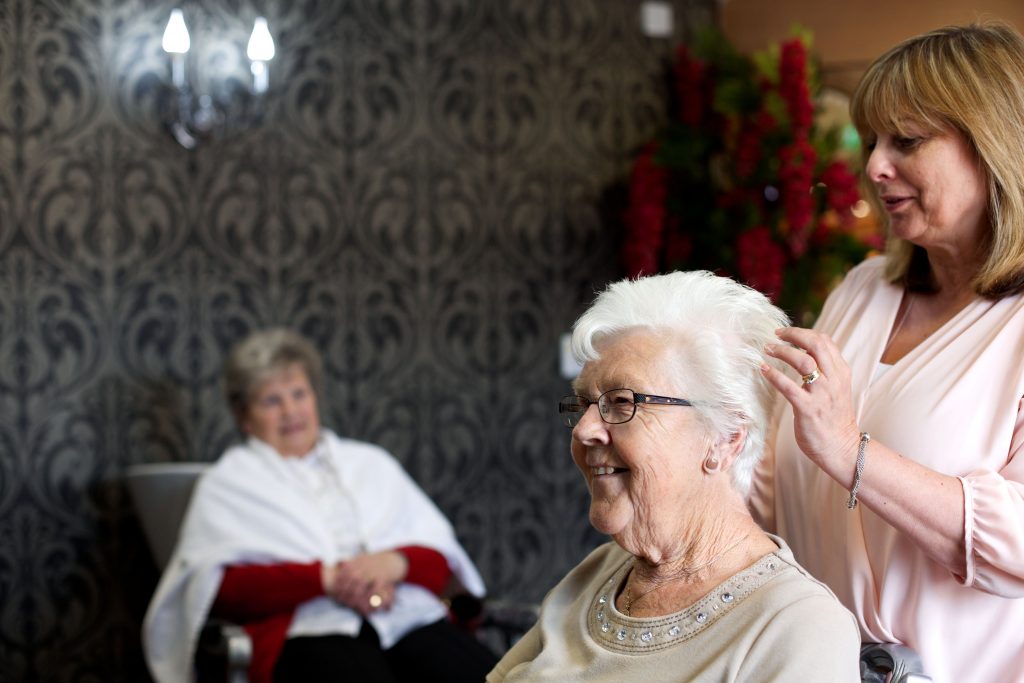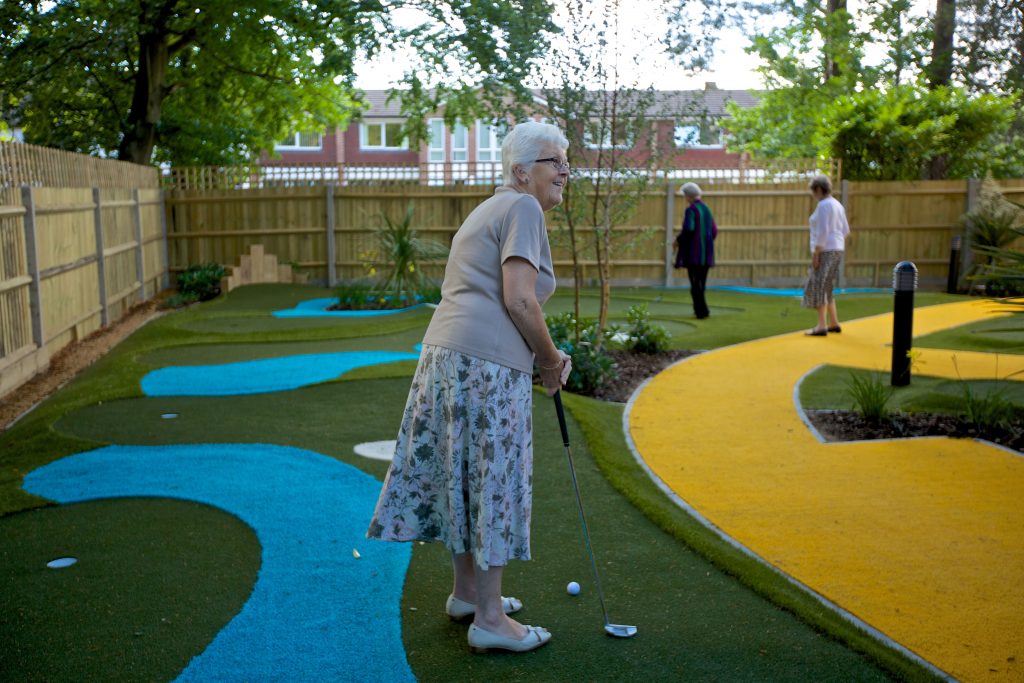At Camberley Manor, we provide highly tailored and stimulating dementia care in Surrey for residents dealing with different stages and types of dementia. At TLC Care we believe in providing personalised support, as we understand how differently this disease can affect each individual.
The safe care home environment, as well as different facilities to promote cognitive functions will allow the dementia patient to stay engaged and active at our specialist dementia care home. Residents will get to enjoy the benefits of our award-winning care, all while becoming part of a warm and inclusive TLC Care community, who always strives to make our residents feel completely at home.
Dementia care services in our home are based around individual needs and requirements of each Camberley Manor resident. We strive to provide the most tailored care to support our residents in the most effective ways. To make this possible our support workers and teams of registered nurses constantly build strong and warm relationships with our residents. By directly learning about their needs and overall well-being, we can offer the highest quality personal care and specialist support that aligns with the specific type and stage of dementia they have been diagnosed with.
Our Surrey dementia care home teams also regularly stay in touch with the family and relatives of our residents. With our transparent approach, families are provided with assurance and peace of mind regarding the care their loved ones receive. By fostering strong connections, we guarantee that all questions are answered and everyone involved is kept informed.


At Camberley Manor, our Surrey care teams take a comprehensive approach to dementia care. We recognise the significance of incorporating stimulating activities into our residents’ daily routines.
By regularly organising events and activities, we are able to engage our residents on physical, mental, and social levels, ultimately enhancing their overall well-being. Additionally, our group events provide ample opportunities for our residents to forge new connections, socialise, and share their stories. One of such events available in our Surrey home is “Dementia Cafe”, welcoming anyone affected by the disease to share their experiences, socialise and enjoy a cup of tea in a safe and supportive environment.
Camberley Manor, dementia care home in Surrey is audited and given a rating by Care Quality Commission (CQC) annually. Our care home consistently receives exceptional scores year after year, reflecting the outstanding quality of care not only at our Surrey home, but throughout the entire TLC Care community.
By conducting regular reviews and fostering close relationships with our residents and their loved ones, we consistently enhance the services, amenities, and events offered at Camberley Manor. This commitment is our valuable contribution to constantly improving the lives of our care home community.




A variety of different factors can affect someone’s chances of developing dementia, as different types of it manifest through unique symptoms, which also vary from patient to patient. However, some of the more commonly noticed predictors have been underlined:
The first and exact signs of dementia are truly hard to pinpoint, as this disease differs so much from person to person. However, some more common symptoms of early dementia in patients can be looked out for. Such indicators are mostly noticed across the spectrum of memory loss, deterioration of attention span and communication skills. These issues can frequently arise as patients experience difficulties recalling the names of their close family members and old memories. They may also get disoriented in familiar areas and struggle to perform daily tasks without assistance. Recognising signs of cognitive decline, such as sudden mood shifts or behaviour changes, is crucial. While there is no cure for dementia, there are medications, treatments, and support services that can help maintain cognitive function for a longer time.
Seeing your close one’s personality and behaviours change and become unfamiliar can bring many emotions upon the family caregivers, relatives, and friends. Such feelings as guilt, grief, loss, and anger are completely natural when entering this new chapter of life. It is crucial not to keep those feelings bottled up, confiding in loved ones, friends and care specialists can be a beneficial solution, as carrying all of these feelings on your own may take a toll on your mental health. Although every individual will react differently, it is important to know you are not alone if you find yourself feeling low and overwhelmed by the new responsibility. In such situations, communication and expressing what support you may need from your close ones becomes crucial, as other family members may not be able to fully understand how to help. Taking on a caregiving role is never easy and family carers should not feel guilty about asking for help or joining support groups.
We are here to help
Ask A Question
If you have any queries about our homes or care in general, our expert team of trained professionals are here to help. We look forward to hearing from you.
Request A Brochure
To receive a brochure for any of our homes, please contact us below and we will be delighted to share one with you.
Book A Visit
We love to showcase our beautiful homes. Whether virtual or in person, we would love for you to see our fabulous facilities and meet our amazing teams